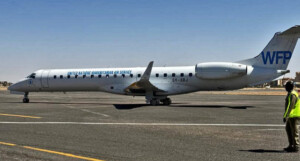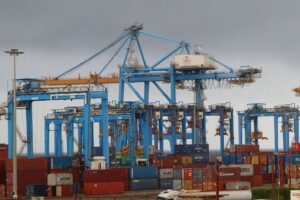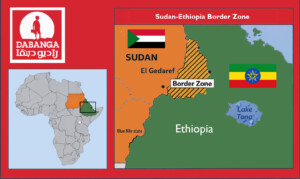Hamdok: ‘Serious discussions’ delay formation of new Sudan govt
The delay in the formation of a new Sudanese government is caused by ongoing discussions between various political forces concerning a national charter, Prime Minister Abdallah Hamdok said yesterday.
“Since the signing of the political agreement on November 21, 2021 [by army commander and president of the Sovereignty Council Gen Abdelfattah El Burhan and Hamdok] on November 21, 2021, the transitional government has not been formed. To our knowledge, this is caused because all political forces supporting the revolution and the civil democratic transition are engaged in a serious and deep dialogue in order to agree on a national charter and create a broad front to achieve civil and fortify the transition democracy,” the PM said on his Facebook page yesterday.
 PM Abdallah Hamdok at his office, July 2020 (SUNA)
PM Abdallah Hamdok at his office, July 2020 (SUNA)
The delay in the formation of a new Sudanese government is caused by ongoing discussions between various political forces concerning a national charter, Prime Minister Abdallah Hamdok said yesterday.
“Since the signing of the political agreement on November 21, 2021* on November 21, 2021, the transitional government has not been formed. To our knowledge, this is caused because all political forces supporting the revolution and the civil democratic transition are engaged in a serious and deep dialogue in order to agree on a national charter and create a broad front to achieve civil and fortify the transition democracy,” the PM posted on his Facebook page and Twitter account yesterday.
“This national charter will constitute a framework to unify the ranks and establish a mechanism to form a government of technocrats, in addition to completing the structures of the transitional authority and the monitoring of its work.”
This will be done “in order to achieve the priorities of the remainder of the transitional period, represented in the implementation of the Juba Peace Agreement, the completion of the peace process, achieving stability and economic recovery, strengthening the security situation, and the completion of the democratic transition process through free and fair elections”.
A draft political declaration submitted by political parties associated with the Forces of Freedom and Change to the Prime Minister has faced sharp criticism from their counterparts. Some parties considered it an attempt to give legitimacy to the coup d’état on October 25, staged by the military “to avoid a civil war in the country. According to coup leader and president of the Sovereignty Council, Gen Abdelfattah El Burhan, the armed forces had had no option apart from detaining politicians who were “carrying out incitement” against the military.
On November 21, and El Burhan and Hamdok signed a political agreement which returned the latter as prime minister. The agreement was cautiously welcomed by the international community, but categorically rejected by a wide spectrum of Sudan’s political and civil forces, professional bodies, and resistance committees, stressing their quest to bring down the coup.
Human Rights Watch commented in a briefing on the human rights situation in Sudan to US Congress on December 13 that while the deal “reaffirms” a partnership between civilians and the armed forces, it excludes the Forces for Freedom and Change (FFC), the civilian coalition of political opposition, civil society groups and professional associations.”
According to the head of the United Nations Integrated Transition Assistance Mission in Sudan (UNITAMS), Volker Perthes, restoring the deepening mistrust between Sudan’s military and civilian components, as well as between the civilian parties themselves, will be the biggest challenge for the country.











 and then
and then